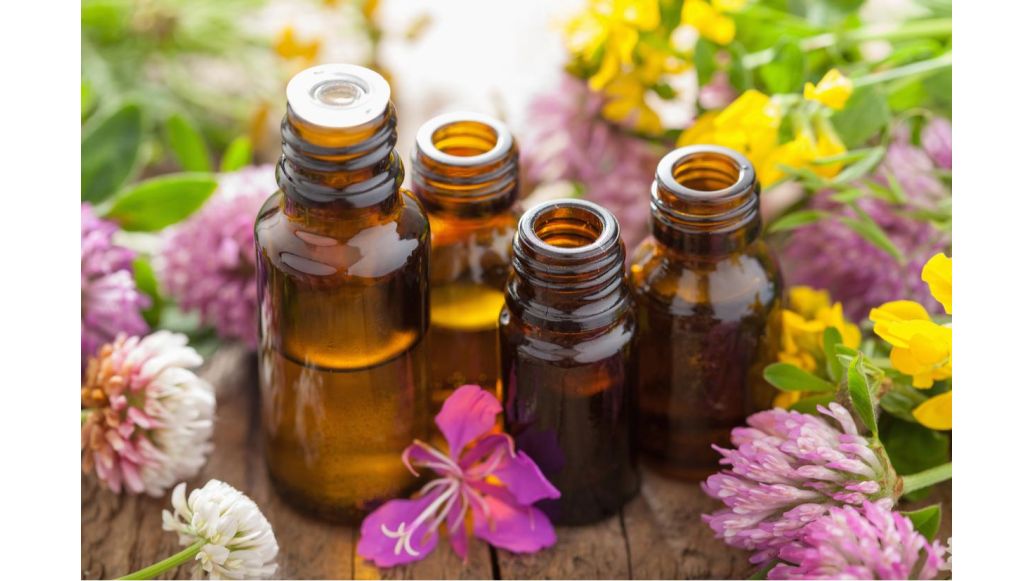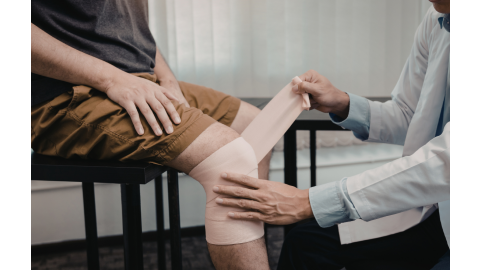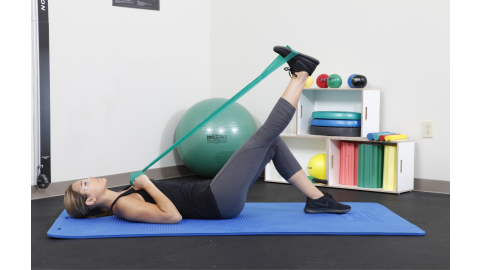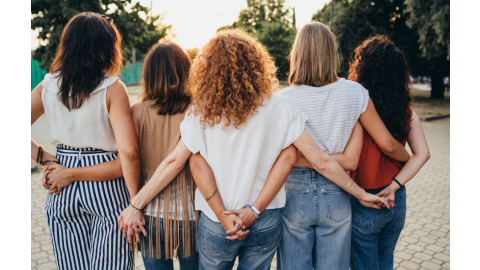Are you interested in essential oils but not sure where to start? All of the scent and application choices can be overwhelming. Learn all of the basics so you can decide if essential oils are right for you. Then find the right scent and get started!
Essential Oil Basics
Essential Oils Research and Safety
Using Essential Oils
Essential Oil Basics
What are essential oils?
Essential oils are concentrated plant extracts that have been turned into oils. The word essential refers to "essence-of"; it takes 220 pounds of lavender flowers to make one pound of lavender oil, which is why essential oils are often diluted before use.
Specific oils are often chosen to elicit certain emotions, like lavender for relaxation or lemon for uplifting your mood. Essential oils are commonly used in aromatherapy and massage therapy.
How are essential oils made?
Essential oils are made through mechanical pressing (expression) or distillation. Different oils use different parts of the plant, including the bark, leaves, roots, flowers, and peel.
In cold pressing, these plant parts become essential oils due to mechanical pressure that forces the oil out of the materials. This method is used to press citrus oils from the fruit’s rind. For example, lemon, lime, and orange essential oils are made from pressed peels.
In steam distilled essential oils, steam is forced through the plant material and then condensed to form a mix of essential oils and water that can then be separated because the oil floats. This is a common method used for most essential oils, including peppermint and lavender.
Who uses essential oils?
Essential oils are commonly used in aromatherapy. Aromatherapists select oils to fit your symptoms and then apply them to your skin or ask you to inhale them. Massage therapists and masseuses may also use essential oils to enhance your relaxation experience during a massage. Additionally, some nurses and doctors use essential oils as part of complementary alternative medicine. Plus, many people use essential oils at home too.
Essential Oils Research and Safety
How do essential oils work?
Essential oils used in aromatherapy are thought to work by stimulating scent receptors in the nose. These receptors then send messages through your nervous system to your limbic system. Your limbic system controls your emotions and is thought to then react depending on the specific oil’s scent.
What does essential oils research say?
Several studies have looked at the benefits of specific essential oils and their effect on participants. One study found that lemon oil reliably enhanced mood and made participants feel more positive compared to lavender oil (typically used for a calming effect) and water.
Another quantitative review examined the results from fifteen different studies on the effects of inhaled essential oils on sleep research subjects. Researchers found that in the majority of studies essential oils had a positive effect on sleep and helped with mild sleep disturbances. The most frequently studied essential oil was lavender, though other oils were also used.
Looking beyond mood, essential oils may also have a place in the medical field for antibiotic purposes. A 2004 study found that a combination of citricidal (grapefruit seed extract) and geranium oil was the most effective antibacterial essential oil mix against MRSA, while geranium and tea tree oil was most effective against methicillin-sensitive S. aureus (Oxford strain). This study suggests that certain essential oils may be useful as antibacterial agents as well.
Overall, some essential oils have research that supports their benefit claims, while others need further studies to confirm their reported benefits.
Are essential oils safe?
Be sure to talk to a medical professional and read the product’s label to make sure essential oils are the right choice for you. In general, essential oils are safe if you follow basic guidelines.
- Don’t swallow essential oils or take them orally
- Don’t inhale or rub essential oils on yourself while pregnant or on babies or children
- Some oils make your skin more sensitive to sunlight - cover up and avoid direct sun when using those oils
- Always dilute essential oils before use
- Do a skin test on a small area of skin before using new oils
- Stop using essential oils if they are irritating your skin (itching, rash, etc.)
- Don’t overuse essential oils
- Talk to a medical professional before use
- The ASPCA Animal Poison Control Center warns to be careful when using essential oils around your pets
- Use oils in a secured area your pets can’t access
- Don’t use them if you have birds or pets with a history of respiratory problems
- Ask your veterinarian how to keep your pets safe when using essential oils
Learn more about Bon Vital Essential Oils’ general cautions.
Using Essential Oils
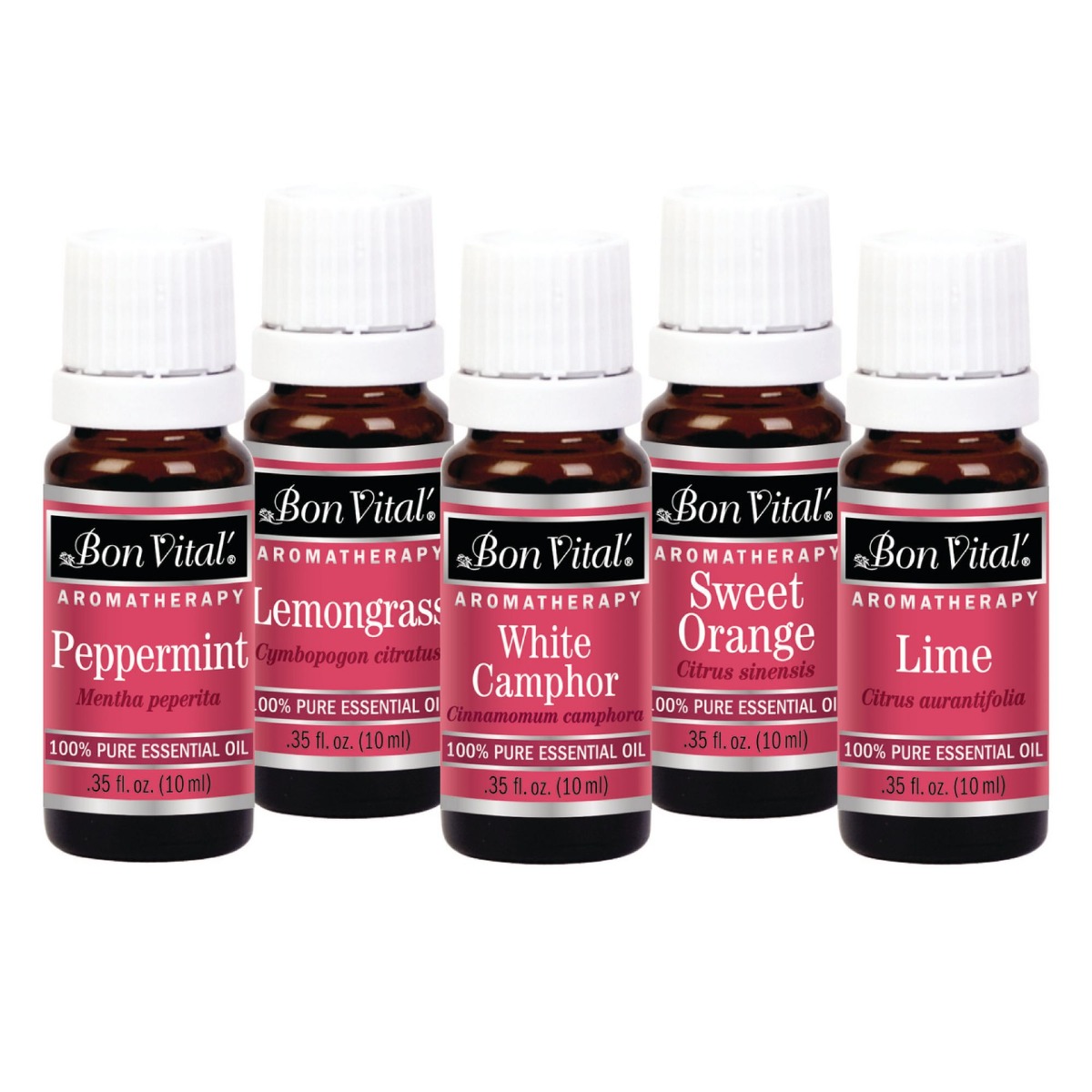
What do you use different essential oils for?
Different essential oils have different attributes and benefits. Choose between a variety of essential oils to fit your needs.
- Lavender essential oil is commonly used to support restful sleep.
- Citrus scents like lemon and lime are used to brighten moods.
- Peppermint oil is energizing and can be used to help increase focus.
- Tangerine oil can be used to boost energy.
- Oils can also be mixed together to support different moods like relaxation or vitality.
Learn more about the benefits of essential oils and their unique scents.
What do other customers say about Bon Vital’ Essential Oils?
Essential Oil Bliss "I had a facial at a spa and they used an oil that smelled so amazing. The scent of the oil was almost the best part of the facial. I asked what it was and it was Bon Vital Relaxation essential oil. I ordered it and two other oils and love them all. They are high quality and a little goes a long way..." – Mora E., Bon Vital’ Customer
What can I use to dilute essential oils?
Essential oils are very concentrated so they are typically diluted before use. You have a few options when using essential oils.
Indirect Inhalation
Essential oils can be added to a room diffuser to spread the scent throughout your room. Another option for indirect inhalation is to place a few drops of oil on a tissue or cotton ball and set it nearby.
Direct Inhalation
During direct inhalation, you breath the essential oil using an individual inhaler. This is created by floating a few drops of essential oil on top of hot water.
Massage
Essential oils can also be mixed into massage lotions, oils, and gels. This "carrier" oil (lotion or gel) dilutes the essential oil. The mixture is then massaged into the skin. We recommend a maximum of 10 drops of Bon Vital’ Essential Oils to 1 oz. of carrier.
Oil is the most common choice for a carrier. Get started using a few drops of your favorite scent plus Bon Vital’ Therapeutic Touch Massage Oil, which includes olive oil. Choose this oil to moisturize and nourish your skin.
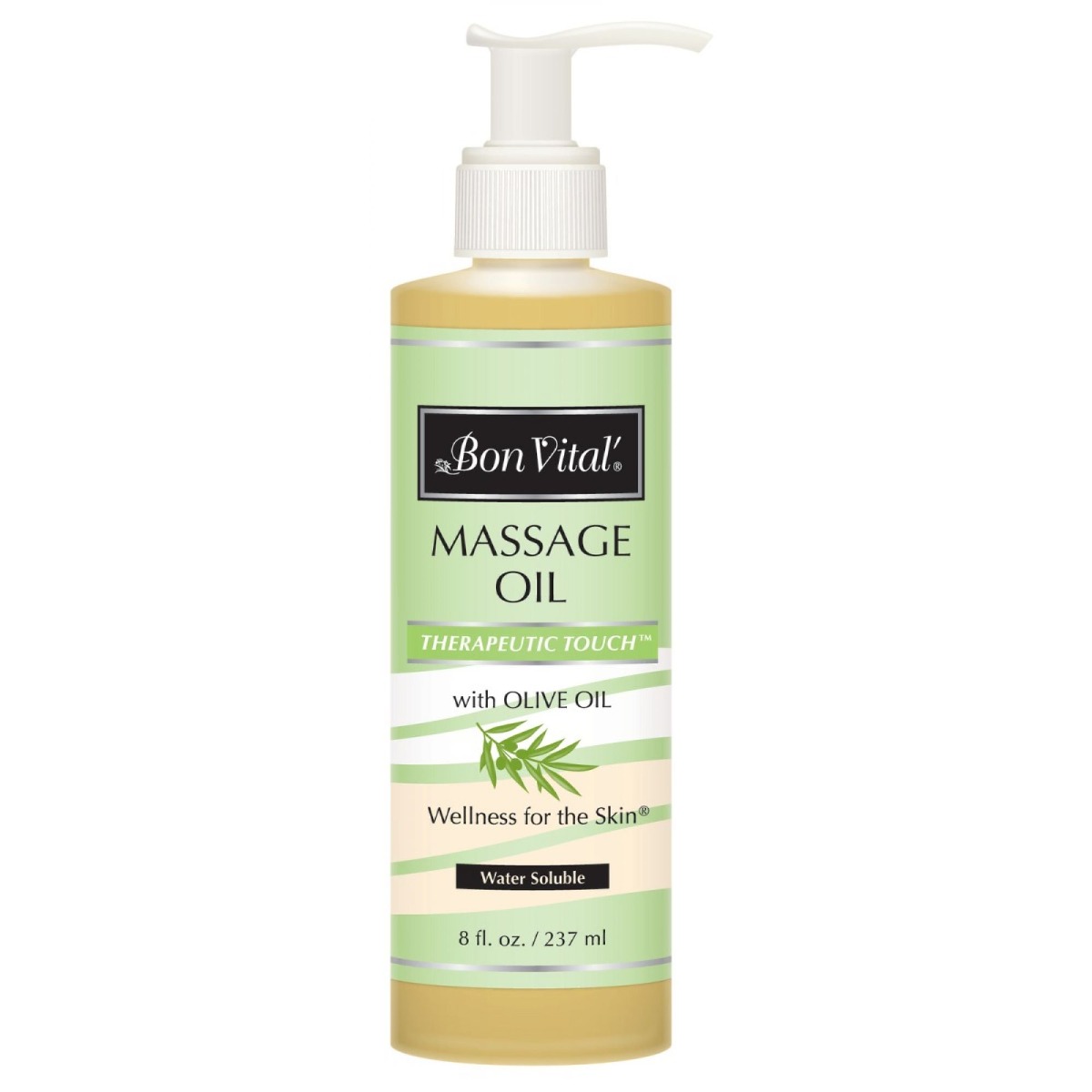 Love it!! "We have used lots of massage oils and this is by far the best. My husband was going to school to be a massage therapist (yes, lucky me!!) and the school uses this. It is absolutely the best. Sometimes we add a bit of essential oils to it for relaxation, etc. Love it".
Love it!! "We have used lots of massage oils and this is by far the best. My husband was going to school to be a massage therapist (yes, lucky me!!) and the school uses this. It is absolutely the best. Sometimes we add a bit of essential oils to it for relaxation, etc. Love it".
– SMc, Amazon Customer
Or explore your other carrier options for diluting your essential oils.
Now that you’ve got the basics covered, you’re ready to use essential oils. Choose your scent and start enjoying aromatherapy!
References
Aromatherapy. (2018). Breastcancer.org. Retrieved from https://bit.ly/2xaTpd5
ASPCA. (2018). Is the Latest Home Trend Harmful to Your Pets? What You Need to Know. Retrieved from https://bit.ly/2DO3y20
Bauer, B.A. (2017). What are the benefits of aromatherapy? Mayo Clinic. Retrieved from https://mayocl.in/2yA1vxe
Edwards-Jones, V., Buck, R., Shawcross, S.G., Dawson, M.M., & Dunn, K. (2004). The effect of essential oils on methicillin-resistant Staphylococcus aureus using a dressing model. Burns. Retrieved from https://bit.ly/2LmhdDl
Kiecolt-Glaser, J. K., Graham, J. E., Malarkey, W. B., Porter, K., Lemeshow, S., & Glaser, R. (2008). Olfactory influences on mood and autonomic, endocrine, and immune function. Psychoneuroendocrinology. Retrieved from https://bit.ly/2L682nj
Lillehei AS, Halcon LL. A systematic review of the effect of inhaled essential oils on sleep. Journal of Alternative and Complementary Medicine 2014; 20(6): 441-451. Retrieved from https://bit.ly/2IJv4St
Marshall, L. (2018). Essential Oils Promise Help, But Beware the Risks. WebMD. Retrieved from https://wb.md/2P6K4ux
NIH. (2019). Aromatherapy With Essential Oils (PDQ®)–Patient Version. National Cancer Institute. Retrieved from https://bit.ly/2ZNGcmC
NIH. (2018). Essential Oils. National Institute of Environmental Health Sciences. Retrieved from https://bit.ly/2R0897B
Shutes, J. (n.d.) National Association for Holistic Aromatherapy. Retrieved from https://bit.ly/2JSBBZq
Medical Disclaimer: The information provided on this site, including text, graphics, images and other material, are for informational purposes only and are not intended to substitute for professional medical advice, diagnosis or treatment. Always seek the advice of your physician or other healthcare professional with any questions or concerns you may have regarding your condition.








 France
France Australia
Australia